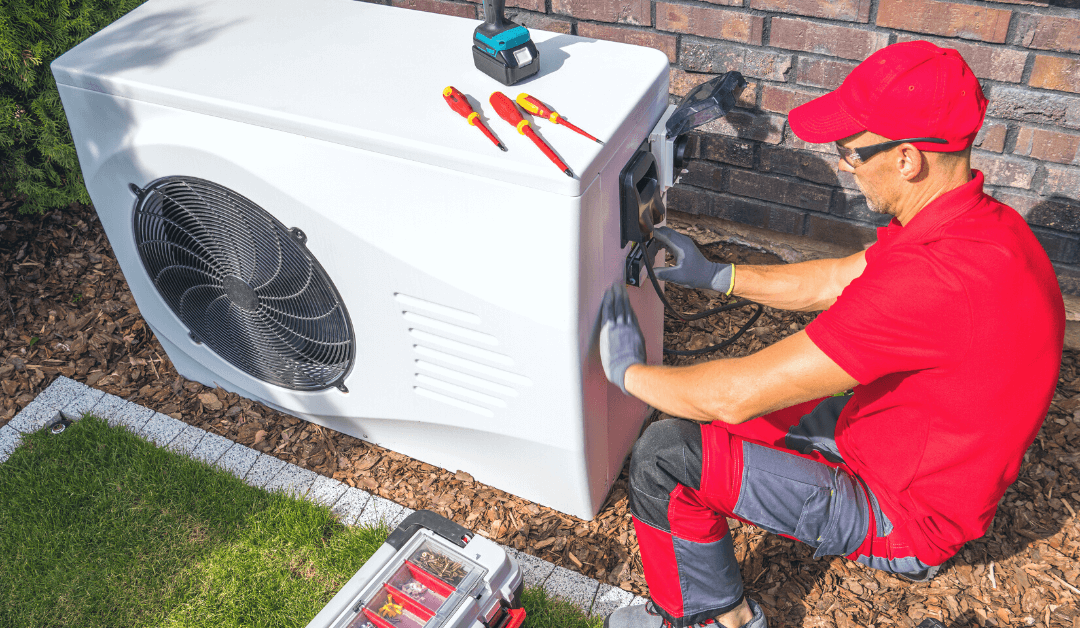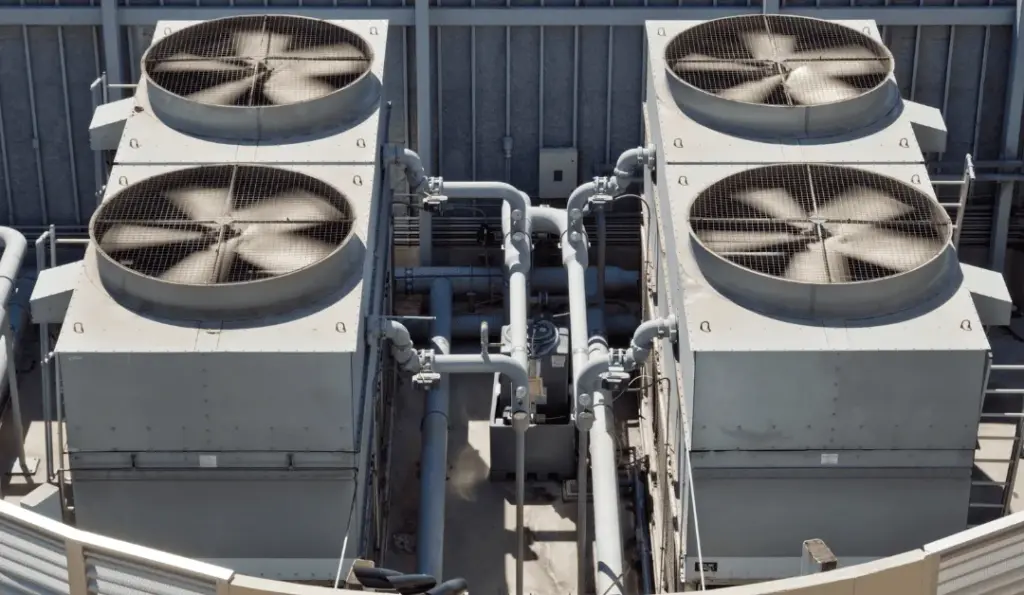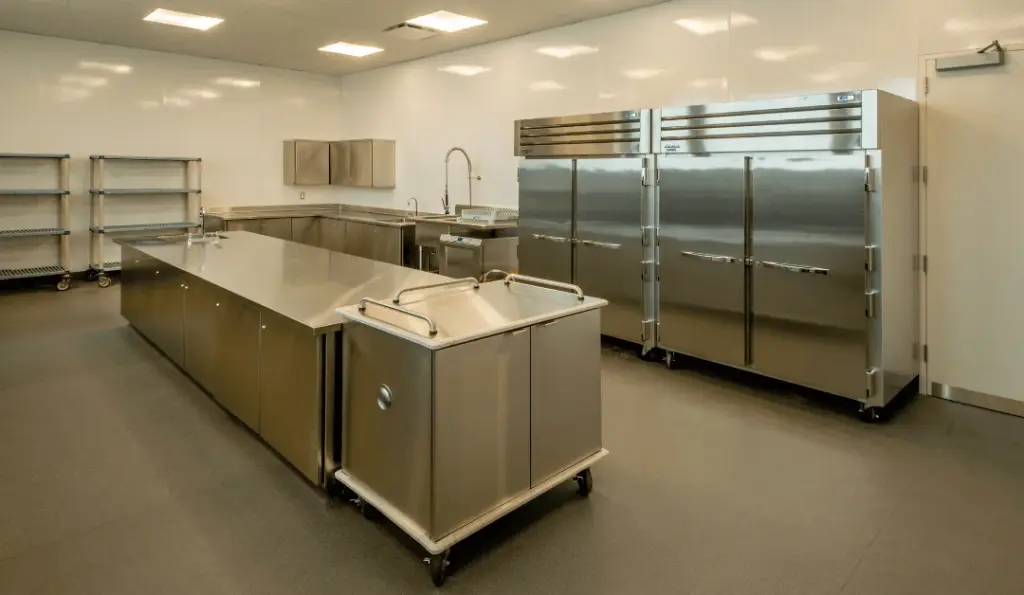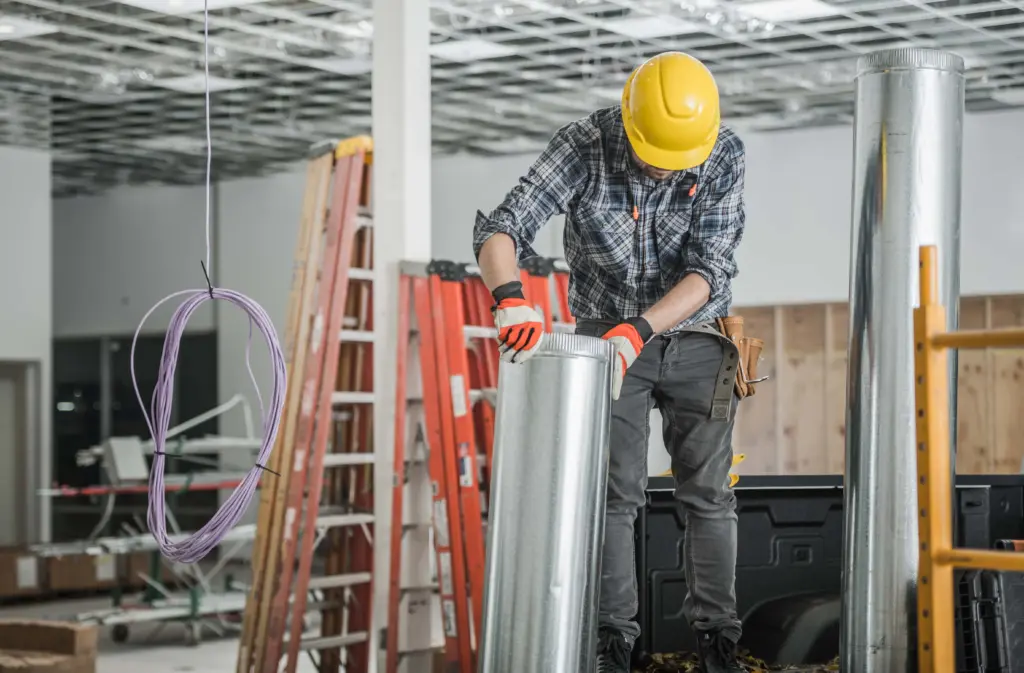When it comes to the health and efficiency of a commercial building, one of the most crucial systems to consider is the Heating, Ventilation, and Air Conditioning (HVAC) system. Whether you’re the owner of a commercial building, a facilities manager, or a commercial HVAC contractor like us at Service Tech, it’s important to know the regulations and codes that come into play when replacing HVAC units.
Are Commercial Buildings Required To Come Up To Code When Replacing HVAC Units?
The simple answer to the question, “Are commercial buildings required to come up to code when replacing HVAC units?” is generally, yes. But as is often the case with complex issues, there’s more to consider. This blog post aims to shed some light on this subject.
Building Codes and Regulations
Local, state, and federal codes govern commercial HVAC systems, varying from jurisdiction to jurisdiction. In the U.S., the National Fire Protection Association (NFPA), the American Society of Heating, Refrigerating and Air-Conditioning Engineers (ASHRAE), and the Occupational Safety and Health Administration (OSHA) are some of the organizations that set forth regulations.
When you replace an HVAC system, you’ll likely need to pull permits, and an inspection will typically follow. Failing to comply with codes can result in fines, legal action, and can even impact insurance coverage.
Grandfathering vs. Modern Requirements
The concept of ‘grandfathering’ refers to existing systems that were installed according to the codes and standards available at the time. These systems are often not required to be updated until a major replacement or renovation takes place. In other words, if your HVAC system was installed 20 years ago and met the requirements at that time, you generally wouldn’t be obligated to upgrade the system to meet today’s standards unless you’re replacing it or undertaking significant renovations.
Energy Efficiency Standards
One of the most common reasons for updated codes is the shift towards more energy-efficient technologies. With growing concerns about climate change and resource depletion, newer codes often aim to reduce energy consumption. When replacing an HVAC system, you might need to install a unit that meets higher energy-efficiency ratings than your old system.
Accessibility and Safety
Updated codes may also address accessibility and safety issues. For example, if your current HVAC system obstructs pathways or doesn’t meet current fire safety regulations, you may need to reposition the new unit or make additional building modifications during the replacement.
Budgeting for Compliance
While coming up to code can be an extra expense, failing to do so can lead to more significant financial burdens in the long run. To avoid surprise costs, always consult professionals familiar with the local building codes. It’s advisable to include a contingency fund in your budget to cover any unforeseen requirements.
What Happens if I Don’t Comply?
Failure to comply can result in a range of consequences, from fines to legal ramifications. Not only that, but insurance companies may refuse to cover a building that doesn’t meet current codes, potentially resulting in even more financial losses.
Service Tech Is Here To Help
In summary, when replacing HVAC units in commercial buildings, you are generally required to meet current building codes and regulations. From energy efficiency to safety standards, the aim is to create healthier, more sustainable spaces for everyone. While the initial costs of compliance can be high, they are often outweighed by long-term gains in efficiency, safety, and legal security.
Whether you’re a building owner or a facility manager, it’s crucial to be aware of the regulations in your jurisdiction and to consult professionals in the field. After all, compliance is not just about adhering to laws; it’s about fostering a safer, more sustainable future.
For more information or consultation about your commercial HVAC needs in Birmingham, reach out to Service Tech HVAC. We’re here to help you navigate the complexities of HVAC replacements, ensuring that your building is up to code and running efficiently.





